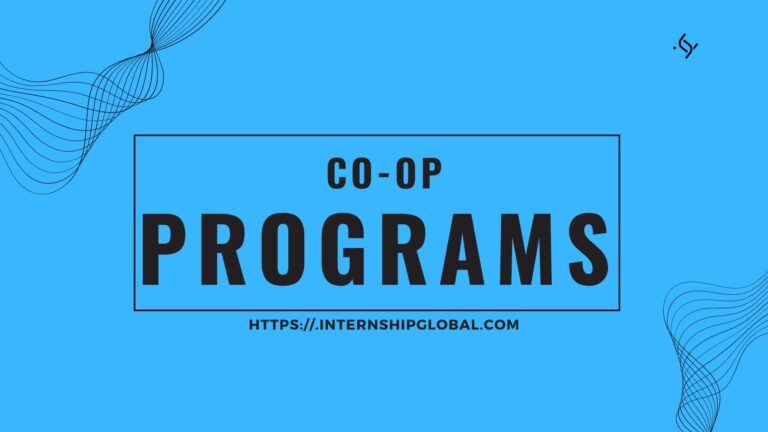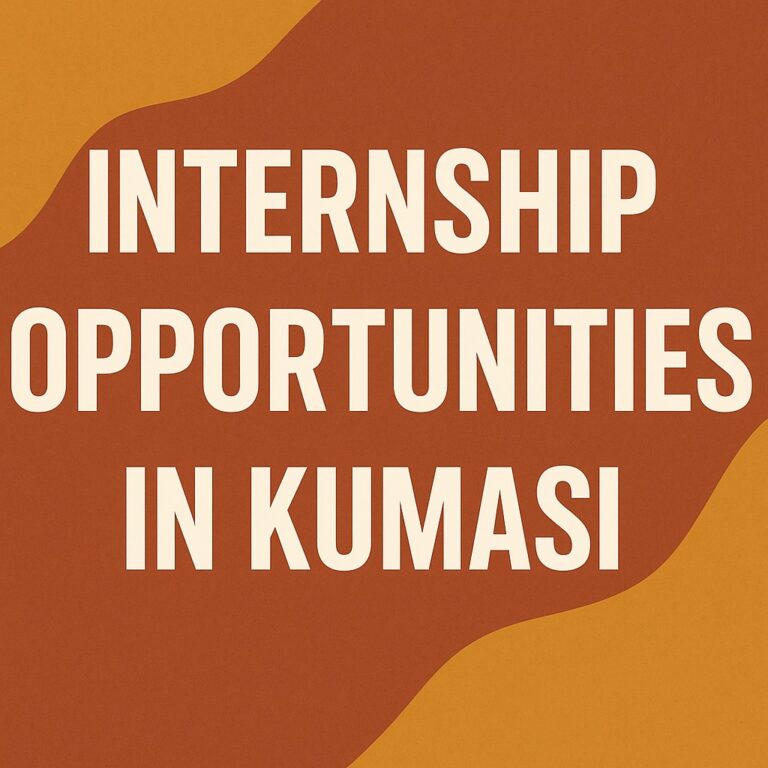Job Boards and Websites for Global Internship Opportunities 2025
Click to unlock exclusive FREE OPPORTUNITIES
Internships have become an integral component of career development in today’s competitive job market. According to the National Association of Colleges and Employers (NACE), 91% of employers prefer candidates with work experience, and 65% of these employers specifically favor candidates with relevant internship experience. This underscores the critical role internships play in bridging the gap between academic knowledge and practical workplace skills.
In recent years, the landscape of internship searching has undergone a significant transformation with the rise of online job boards and websites. These platforms have revolutionized the way students and recent graduates connect with potential employers, offering unprecedented access to opportunities across various industries and geographical locations.
Click to unlock exclusive FREE OPPORTUNITIES
This blog post will explore the effective utilization of job boards and websites for finding internship opportunities worldwide. We will delve into strategies for maximizing these resources, provide examples of successful application materials, and offer insights into navigating the global internship landscape.
Understanding Job Boards and Websites
Definition and Types of Job Boards
Click to unlock exclusive FREE OPPORTUNITIES
Job boards are online platforms that aggregate job listings from various employers, allowing job seekers to search and apply for positions in a centralized location. These platforms can be broadly categorized into three types:
- General Job Boards: These platforms cover a wide range of industries and job types, including internships. Examples include Indeed, Monster, and CareerBuilder.
- Niche or Industry-Specific Job Boards: These focus on particular sectors or job types. For instance, Dice specializes in technology jobs, while Mediabistro caters to media and communications roles.
- Geographical Job Boards: These platforms focus on specific regions or countries. Examples include SEEK for Australia and New Zealand, and Naukri for India.
General vs. Industry-Specific Job Boards
While general job boards offer a broad range of opportunities, industry-specific boards provide targeted listings that can be particularly valuable for internship seekers:
Click to unlock exclusive FREE OPPORTUNITIES
General Job Boards: Pros:
- Wide variety of opportunities across different sectors
- Useful for exploring diverse career paths
- Often have more advanced search features
Cons:
- High competition due to larger user base
- May require more time to filter relevant opportunities
Click to unlock exclusive FREE OPPORTUNITIES
Industry-Specific Job Boards: Pros:
- Targeted listings relevant to your field of study
- Often include industry-specific resources and insights
- Can help build sector-specific networks
Cons:
- Limited to specific industries
- May have fewer overall listings
Popular Global Job Boards for Internships
Click to unlock exclusive FREE OPPORTUNITIES
Several platforms have emerged as leaders in the internship search space:
- LinkedIn: Beyond its networking capabilities, LinkedIn’s job board feature is a powerful tool for internship searches. It allows users to leverage their professional networks and often provides insights into company culture and employee experiences.
- Glassdoor: Known for its company reviews and salary information, Glassdoor also offers a robust internship search function. It’s particularly useful for researching potential employers.
- Indeed: As one of the largest job aggregators, Indeed pulls listings from various sources, including company websites and other job boards.
- Handshake: This platform partners with universities to connect students with employers, offering a curated selection of internships and entry-level positions.
When utilizing these platforms, it’s important to remember that while they offer vast opportunities, they should be part of a comprehensive internship search strategy. Combining the use of job boards with networking, direct applications, and university career services can significantly enhance your chances of securing a desirable internship position.
Top Job Boards and Websites for Internships
General Internship Websites
Click to unlock exclusive FREE OPPORTUNITIES
Indeed, Glassdoor, and LinkedIn stand out as premier platforms for internship seekers. Indeed’s strength lies in its vast database, aggregating listings from multiple sources. Its advanced search features allow users to filter by location, salary range, and job type, making it easier to find relevant internship opportunities. Glassdoor complements its job listings with company reviews, providing valuable insights into workplace culture and intern experiences. LinkedIn leverages its professional networking capabilities, often allowing applicants to see their connections within target companies, which can be advantageous in the application process.
Industry-Specific Job Boards
For those seeking specialized internships, industry-specific job boards offer targeted opportunities. Mediabistro caters to media and communications roles, featuring internships in journalism, public relations, and advertising. Tech enthusiasts can turn to GitHub Jobs or Stack Overflow Careers for software development and IT internships. Fashion industry aspirants might find Fashionista’s job board particularly useful for design, merchandising, and marketing internships in the fashion world.
Regional Job Boards
Click to unlock exclusive FREE OPPORTUNITIES
Internship seekers targeting specific geographical areas can benefit from regional job boards. SEEK is the go-to platform for opportunities in Australia and New Zealand, offering a dedicated internship section. In India, Naukri dominates the job search landscape, including a robust internship category. For those looking at opportunities in Africa, Careers24 covers multiple African countries, providing access to both local and multinational company internships.
University Career Portals and Alumni Networks
Many universities have dedicated career portals that connect students with internship opportunities. These platforms often feature exclusive listings from alumni and partner companies. For instance, Harvard’s Office of Career Services provides access to Crimson Careers, a comprehensive job and internship database for students and alumni. Similarly, Stanford’s Handshake platform offers personalized job and internship recommendations based on students’ profiles and interests.
Strategies for Effective Use of Job Boards
Creating a Strong Online Profile
Click to unlock exclusive FREE OPPORTUNITIES
A compelling online profile is crucial for standing out on job boards. On LinkedIn, for example, a complete profile is 40 times more likely to receive opportunities through the platform. Start with a professional headshot and craft a concise, keyword-rich headline that reflects your career aspirations. Your summary should highlight your key skills, experiences, and career goals. Incorporate relevant coursework, projects, and any volunteer experiences that demonstrate your capabilities and interests.
Setting Up Job Alerts and Notifications
Most job boards offer alert systems that notify you of new relevant listings. Tailor these alerts to your specific criteria, such as location, industry, and job type. Indeed allows users to create multiple job alerts with different parameters, ensuring you don’t miss out on opportunities that match your diverse interests. Glassdoor’s alert system even notifies you when new reviews or salary information is posted for companies you’re following.
Using Advanced Search Features and Filters
Click to unlock exclusive FREE OPPORTUNITIES
Leverage the advanced search capabilities of job boards to refine your internship search. On LinkedIn, use Boolean search operators to create more precise searches. For instance, a search for “marketing intern” AND (Google OR Facebook) NOT unpaid will yield paid marketing internship opportunities at Google or Facebook. Utilize filters for posting date, experience level, and company size to further narrow down your options.
Networking Through Job Board Communities
Many job boards have built-in networking features that can enhance your internship search. LinkedIn Groups, for example, allow you to connect with professionals in your field of interest. Engaging in discussions and sharing insights can help you build relationships that may lead to internship opportunities. Some platforms, like Handshake, facilitate virtual networking events where you can interact directly with employers offering internships.
Optimizing Your Application for Online Submissions
Tailoring Your Resume and Cover Letter for Each Application
Click to unlock exclusive FREE OPPORTUNITIES
When applying through job boards, it’s crucial to customize your application materials for each opportunity. According to a study by Ladders, recruiters spend an average of just 7.4 seconds reviewing a resume. To capture their attention, align your resume with the specific requirements of the internship posting. Highlight relevant skills, experiences, and achievements that directly address the job description. For your cover letter, research the company thoroughly and demonstrate your understanding of their mission and values. Personalize each letter by addressing specific projects or initiatives the company is involved in, showing how your skills and interests align with their work.
Using Keywords Effectively
Many companies use Applicant Tracking Systems (ATS) to screen resumes before they reach human reviewers. To optimize your application for these systems, incorporate relevant keywords from the job description into your resume and cover letter. However, avoid “keyword stuffing” – use terms naturally within the context of your experiences and skills. Tools like JobScan can help you compare your resume against job descriptions to ensure you’ve included critical keywords.
Making the Best Out of Applicant Tracking Systems (ATS)
To successfully navigate ATS, format your resume simply and clearly. Use standard section headings like “Education,” “Experience,” and “Skills.” Avoid using graphics, tables, or unusual fonts that may not be read correctly by the ATS. Submit your resume in a widely compatible format, such as .docx or .pdf, unless the application specifies otherwise. Some systems, like Taleo, allow you to preview how your resume appears to recruiters after processing – take advantage of this feature when available.
Strong Resume for a Marketing Internship Sample Template
[Name: Full Official Name] [Address: Postal or Residential ] | [Phone] | [Email: official Email] | [LinkedIn Profile – must be well optimized]
Professional Summary: Motivated marketing student with hands-on experience in digital marketing and brand management. Skilled in social media strategy, content creation, and data analysis. Seeking a challenging marketing internship to apply classroom knowledge and further develop practical skills.
Education: Bachelor of Business Administration, Marketing Major [University Name], Expected Graduation: May 2024 GPA: 3.8/4.0 Relevant Coursework: Digital Marketing Strategies, Consumer Behavior, Marketing Analytics, Brand Management
Skills
- Digital Marketing: Google Analytics, SEO/SEM, Email Marketing
- Social Media Management: Hootsuite, Buffer, Sprout Social
- Data Analysis: Excel, Tableau, SPSS
- Design: Adobe Creative Suite (Photoshop, Illustrator, InDesign)
- Languages: Fluent in English and Spanish
Marketing Experience Marketing Assistant (Part-time) XYZ Company, [City, State] September 2022 – Present
- Assist in developing and executing social media campaigns across multiple platforms, resulting in a 25% increase in engagement and 10,000 new followers
- Conduct market research and compile competitive analysis reports, informing strategic marketing decisions
- Create and optimize content for the company blog, improving organic search traffic by 30%
- Collaborate with the design team to produce visually appealing marketing collateral for various campaigns
Leadership Experience Vice President, University Marketing Association [University Name] August 2022 – Present
- Lead a team of 5 members in organizing campus-wide marketing events and workshops
- Increased club membership by 40% through targeted outreach and engagement initiatives
- Coordinate guest speaker series, featuring marketing professionals from top companies in the industry
Projects Digital Marketing Campaign for Local Non-Profit Digital Marketing Strategies Course, Fall 2022
- Developed and implemented a comprehensive digital marketing strategy for a local animal shelter
- Created engaging social media content and email campaigns, resulting in a 50% increase in adoption inquiries
- Analyzed campaign performance using Google Analytics, providing data-driven recommendations for future improvements
Certifications
- Google Analytics Individual Qualification
- HubSpot Inbound Marketing Certification
- Facebook Blueprint Certification
This resume example demonstrates several key features:
- A concise professional summary that highlights key skills and aspirations.
- Relevant coursework that showcases academic preparation for the internship.
- A skills section that emphasizes both technical and soft skills pertinent to marketing.
- Detailed descriptions of marketing experience, quantifying achievements where possible.
- Leadership experience that demonstrates transferable skills valuable in a marketing role.
- A relevant project that showcases practical application of marketing knowledge.
- Industry-recognized certifications that validate the candidate’s skills and initiative.
Compelling Cover Letter for a Marketing Internship Sample Template
[Your Name] [Your Address] [Your Email] [Your Phone Number]
[Date]
[Hiring Manager’s Name] [Company Name] [Company Address]
Dear [Hiring Manager’s Name],
I am writing to express my strong interest in the Marketing Internship position at [Company Name], as advertised on [Job Board Name]. As a third-year marketing student at [University Name or where you had your marketing Education] with a passion for digital marketing and brand strategy, I am excited about the opportunity to contribute to your innovative marketing team.
Your company’s recent campaign for [Product/Service Name] particularly impressed me, showcasing a brilliant blend of creativity and data-driven strategy. I admire [Company Name]’s commitment to pushing the boundaries of digital marketing, especially your focus on [specific aspect of their marketing approach]. This aligns perfectly with my academic focus and career aspirations in the field of marketing.
Through my coursework and part-time role as a Marketing Assistant at XYZ Company, I have developed a strong foundation in key marketing concepts and practical skills. Some of my relevant experiences include:
- Developing and executing social media campaigns that increased engagement by 25% and grew our follower base by 10,000
- Conducting market research and competitive analysis to inform strategic marketing decisions
- Creating and optimizing content for SEO, resulting in a 30% improvement in organic search traffic
I am particularly excited about the opportunity to work on [specific project or aspect mentioned in the job description]. My experience with [relevant skill or project] has prepared me to take on this challenge and contribute meaningfully to your team. I am confident that my skills in [specific skills relevant to the internship] would allow me to make an immediate impact in this role.
Thank you for considering my application. I am enthusiastic about the possibility of joining [Company Name] and would welcome the opportunity to discuss how I can contribute to your marketing initiatives. I look forward to the possibility of speaking with you further about this exciting opportunity.
Sincerely, [Your Name]
This cover letter example demonstrates several key features:
- A strong opening that immediately states the purpose and expresses enthusiasm for the specific role and company.
- Reference to the company’s recent work, showing research and genuine interest.
- Highlights of relevant skills and experiences, with quantifiable achievements.
- Specific mention of how the candidate’s skills align with the internship requirements.
- A clear call to action and expression of eagerness to discuss the opportunity further.
Beyond Job Boards: Complementary Internship Search Strategies
Leveraging Social Media Platforms
While job boards are excellent resources, complementing your search with social media can significantly enhance your internship prospects. LinkedIn, in particular, offers more than just job listings. Engage with company pages, join relevant groups, and follow industry leaders to stay informed about potential opportunities. According to LinkedIn, 122 million people have received an interview through the platform, with 35.5 million having been hired by a person they connected with on LinkedIn.
X (formerly Twitter) can also be a valuable tool. Many companies announce internship openings through their X accounts. Create a professional X profile and use industry-specific hashtags like #MarketingInternship or #TechIntern to find opportunities. Additionally, participate in X chats related to your field to network with professionals who might have insider knowledge about internship openings.
Attending Virtual Career Fairs and Networking Events
Virtual career fairs have become increasingly popular, especially in the wake of global events that have limited in-person gatherings. These online events provide a platform to interact directly with company representatives and learn about internship opportunities. Handshake, a leading career community for college students, reported that 89% of students who attended virtual events felt more prepared for their job search.
Many universities and professional organizations host virtual networking events. These can be excellent opportunities to build relationships with industry professionals and potentially uncover “hidden” internship opportunities that may not be advertised on job boards.
Direct Outreach to Companies of Interest
Don’t hesitate to reach out directly to companies you’re interested in, even if they haven’t posted internship opportunities. According to a survey by LinkedIn, 70% of professionals get hired at companies where they have a connection. Craft a compelling email expressing your interest in the company and inquiring about potential internship opportunities. Include a brief overview of your skills and how you could contribute to their team.
Utilizing Professional Associations and Industry Groups
Many professional associations offer student memberships at reduced rates. These organizations often have job boards, mentorship programs, and networking events specific to their industry. For example, the American Marketing Association (AMA) provides resources for marketing students, including a job board and virtual networking events.
Industry-specific groups on platforms like Meetup or Facebook can also be valuable resources. These groups often share job postings and provide a space for informal networking with professionals in your field of interest.
International Considerations
Language Requirements and Cultural Nuances
When seeking internships abroad, language proficiency is often a critical factor. Many international internships require fluency in the local language, particularly for roles involving client interaction or local market analysis. However, in multinational corporations or global cities, English may be sufficient. The EF English Proficiency Index can provide insights into the English proficiency levels of different countries, helping you gauge potential language requirements.
Cultural awareness is equally important. Understanding and respecting local business etiquette can significantly impact your success. For instance, in Japan, the exchange of business cards (meishi) is a formal ritual with specific protocols, while in Brazil, building personal relationships is often prioritized before discussing business matters. Resources like Hofstede Insights offer valuable information on cultural dimensions across countries, which can help you go through these nuances.
Visa and Work Permit Considerations
Securing the appropriate visa is crucial for international internships. Requirements vary significantly between countries and can be complex. For example:
United States: The J-1 Exchange Visitor Visa is common for interns. It requires sponsorship from a designated organization and has specific eligibility criteria.
European Union: Non-EU citizens typically need a work permit or specific internship visa. Some countries, like Germany, offer “Youth Mobility Visas” that can facilitate internships.
United Arab Emirates: Interns usually require a temporary work permit, which the employing company must sponsor.
Start the visa application process well in advance, as it can be time-consuming. Many countries have specific quotas or application windows for internship visas.
Resources for International Students Seeking Internships Abroad
Several organizations specialize in facilitating international internships:
AIESEC: The world’s largest youth-run organization, offering international internships and volunteer experiences across 120 countries.
The Intern Group: Provides customized internship programs in various countries, including housing and cultural immersion activities.
Erasmus+: For students in the European Union, this program offers funding for internships within EU member states.
Additionally, many universities have study abroad offices that can provide guidance on international internships and may have partnerships with foreign companies or institutions.
Avoiding Scams and Fraudulent Postings of Internships on Job Boards
Red Flags to Watch Out For
As you scan through job boards and internship postings, it’s crucial to be aware of potential scams. Some common red flags include:
Requests for Payment: Legitimate employers don’t charge application fees or require you to purchase equipment.
Overly Generous Compensation: If the pay seems too good to be true for an internship, it probably is.
Vague Job Descriptions: Legitimate postings usually provide clear details about responsibilities and qualifications.
Unprofessional Communication: Be wary of postings with numerous spelling or grammatical errors, or those using personal email addresses (e.g., @gmail.com instead of a company domain).
Pressure to Accept Quickly: Scammers often create a false sense of urgency to prevent you from thoroughly vetting the opportunity.
Verifying the Legitimacy of Internship Postings
Take these steps to ensure the authenticity of an internship opportunity:
Research the Company: Check the company’s official website and verify its existence through business registries or professional networks.
Cross-Reference Postings: If you find a posting on one job board, check if it’s listed on the company’s official career page or other reputable job sites.
Contact the Company Directly: Use the contact information from the official company website, not the job posting, to verify the opportunity’s legitimacy.
Check with your University: Many schools vet internship postings before sharing them with students. Your career services office can be a valuable resource in verifying opportunities.
Use LinkedIn: Check if the company and the person posting the internship have legitimate LinkedIn profiles with substantial connections and activity.
Resources for Reporting Suspicious Listings
If you encounter a suspicious posting, report it to protect yourself and others:
Job Board Reporting Tools: Most major job boards have mechanisms to report suspicious listings. For example, Indeed has a “Report Job” option on each posting.
Federal Trade Commission (FTC): In the United States, you can report scams to the FTC at ftc.gov/complaint.
Internet Crime Complaint Center (IC3): For online scams, file a report with the FBI’s IC3 at ic3.gov.
Your University: Inform your school’s career services office about any suspicious postings, especially if you found them through university resources.
Better Business Bureau: Report scams and check company ratings at bbb.org.
Future Trends in Online Internship Search
AI-Powered Job Matching
Artificial Intelligence is revolutionizing the internship search process. Platforms like Pymetrics use AI-driven games to assess candidates’ cognitive and emotional traits, matching them with suitable internship opportunities. This approach promises to reduce bias in the selection process and improve the fit between interns and employers.
LinkedIn’s AI-powered features, such as “Jobs You May Be Interested In,” are becoming increasingly sophisticated, offering personalized internship recommendations based on your profile, skills, and interaction with the platform.
Virtual and Remote Internships
The global shift towards remote work has accelerated the adoption of virtual internships. According to a survey by the National Association of Colleges and Employers (NACE), 40% of employers offered virtual internship programs in 2021, a trend likely to continue.
Platforms like Virtual Internships and Forage specialize in connecting students with remote internship opportunities across various industries globally. These programs often involve project-based work, allowing interns to contribute meaningfully while developing digital collaboration skills.
Blockchain-Verified Credentials and Applications
Blockchain technology is emerging as a tool for verifying educational credentials and work experiences. MIT has piloted a program issuing digital diplomas using blockchain, which could extend to internship certifications.
For internship applications, blockchain could provide a secure, immutable record of an applicant’s skills, projects, and achievements. This technology could streamline the verification process for employers and reduce fraudulent claims on resumes.
Micro-Internships and Gig-Economy Platforms
The rise of micro-internships – short-term, project-based internships – is changing the landscape of early career experiences. Platforms like Parker Dewey connect students with companies for short-term projects, allowing them to gain diverse experiences across multiple organizations.
This trend aligns with the gig economy model, offering flexibility for both students and employers. It allows students to build a portfolio of work experiences and helps companies assess potential full-time hires through real project work.
As these trends evolve, job seekers should stay adaptable and continue to develop digital skills. The future of internship searching will likely involve a blend of AI-driven matching, remote work capabilities, verified digital credentials, and project-based experiences.
Conclusion
Key Strategies for Effective Job Board Use
- Tailor profiles and applications for each opportunity
- Utilize advanced search features and set up targeted alerts
- Engage with company pages and professional groups on platforms
- Combine job board use with networking and direct outreach
The Evolving Internship Landscape
Internships remain crucial for career development, with online platforms playing an increasingly vital role. As the job market evolves, adaptability and digital literacy are key to success.
Start your search early and approach it with persistence and creativity. Remember that each application and interaction is an opportunity to learn and grow professionally.
Take the first step today: Create or update your profile on a major job board, set up targeted alerts, and start exploring internship opportunities that align with your career goals.
Additional Resources
Top Internship Job Boards by Industry and Region
Technology:
- GitHub Jobs
- Stack Overflow Careers
Marketing:
- Mediabistro
- AMA Job Board
Finance:
- eFinancialCareers
- WallStreetOasis
Regional:
- SEEK (Australia/New Zealand)
- Naukri (India)
- Careers24 (Africa)
Tools for Resume and Cover Letter Creation
- Resume.io: Offers customizable templates and AI-powered content suggestions
- Canva: Provides visually appealing resume templates with easy customization
- Grammarly: Ensures error-free writing for resumes and cover letters
Online Resources:
- The Muse: Offers articles on internship search strategies and career advice
- Vault: Provides industry guides and company rankings for internship seekers
- Internship Global: Blog and resources specifically tailored for internship advice









